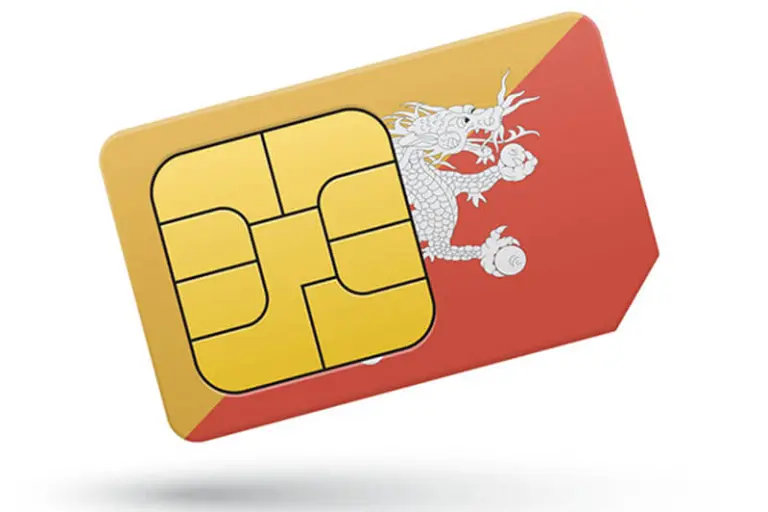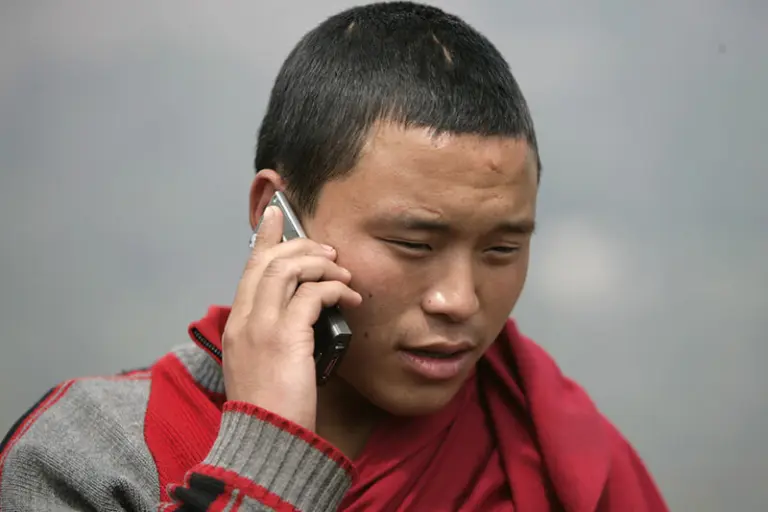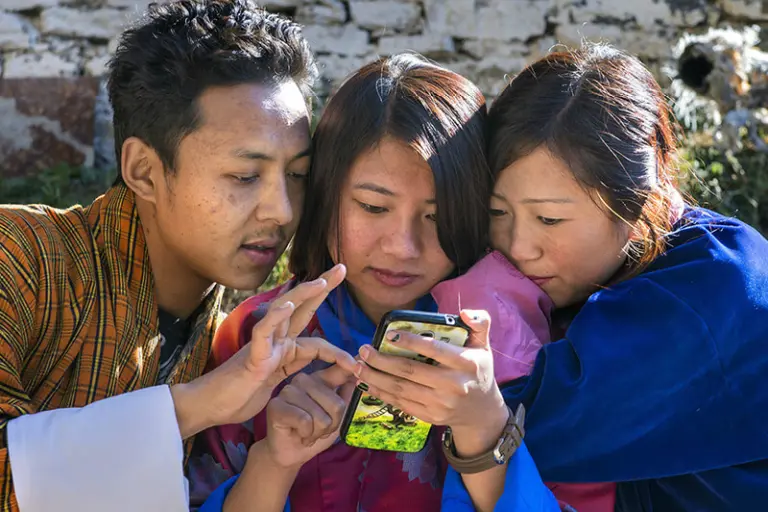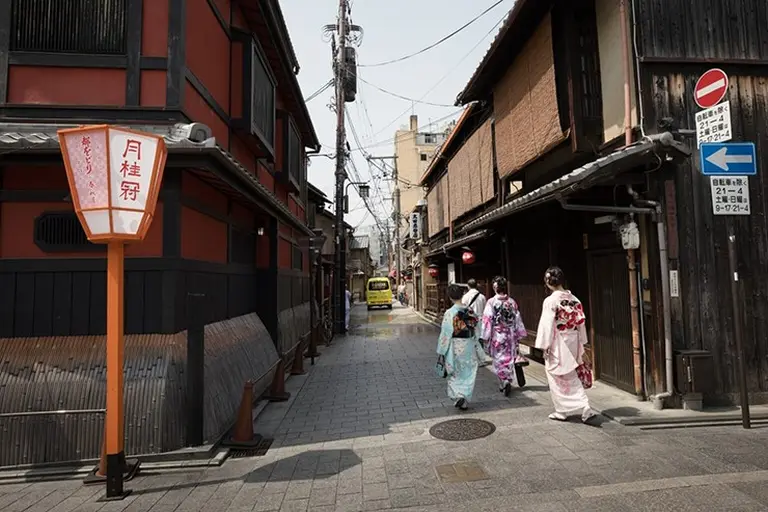One of the most important concerns for travelers visiting Bhutan—aside from general travel services—is how to stay connected. Questions about SIM cards, 3G service, Wi-Fi, and overall internet quality are always on the list for international visitors.
Maintaining an online connection or simply staying in touch with family while in Bhutan can be a challenge. The country’s mountainous terrain, scattered population, and remote tourist attractions make it difficult to maintain strong mobile signals. On top of that, network providers in Bhutan have limited coverage, and roaming services—if available—can be extremely costly.
In bigger cities, mobile reception is better, but phone lines often get congested, making calls difficult. For this reason, the most reliable and affordable way to stay connected in Bhutan is to purchase a local SIM card.

>> Transportation in Bhutan – The country without traffic lights
Which Mobile Network Should You Choose?
Bhutan currently has two mobile service providers:
- B-Mobile (Bhutan Telecom) – state-owned, with wider coverage and more transmission towers.
- Tashi Cell – privately owned, usually offering cheaper local call rates.
For travelers heading to remote areas, B-Mobile is generally the safer option thanks to its stronger coverage.
Where to Buy a SIM Card in Bhutan?
Travelers can easily arrange to buy a SIM card through their tour operator or guide upon arrival. Most guides will help purchase and activate the SIM for you.
SIM cards are not widely available across the country. The most reliable places to buy one are:
- Paro International Airport
- Major cities such as Paro or Thimphu (the capital)
If you don’t purchase one at the airport, it may be difficult to find SIMs in smaller towns or rural areas. That’s why it’s best to inform your guide in advance so they can prepare everything before your trip.

>> Unique cultural traits of the land of the Thunder Dragon, Bhutan
Internet & Data Packages
Most tourists opt for prepaid data packages, which help control costs and prevent unexpected charges. However, postpaid SIMs are also available—often with more stable service—mainly for travelers who need reliable internet for work.
To avoid overspending, the safest option is to buy a 1-month prepaid data package, which usually offers decent internet quality at an affordable price.
- A typical 3G SIM card costs between USD 5 – 10 depending on the package.
- For short stays (under one week), there are 7-day SIM packages priced around 200,000 VND (~USD 8), available with advance registration through your tour operator.
Coverage & Speed in Bhutan
- Hotels – Most provide free Wi-Fi, but speeds are often slow due to high user traffic.
- Urban Areas – Stronger signals with 3G and 4G coverage.
- Rural Villages & Remote Areas – Limited to 2G networks, with very weak or no internet access.
If your travel itinerary includes off-the-grid destinations, plan ahead for limited or no connectivity.

>> The people of Bhutan – 7 fascinating facts about the happiest residents on earth
Final Tips
To ensure smooth communication and internet access during your Bhutan trip:
- Coordinate with your tour operator to buy and activate a SIM card in advance.
- Choose B-Mobile for better coverage, especially if traveling to remote regions.
- Select a prepaid package to manage costs efficiently.
- Don’t rely solely on hotel Wi-Fi—it’s often slow and unstable.
By preparing in advance, you can avoid unnecessary costs, stay connected with family and friends, and fully enjoy your Bhutanese adventure without worrying about internet issues.






